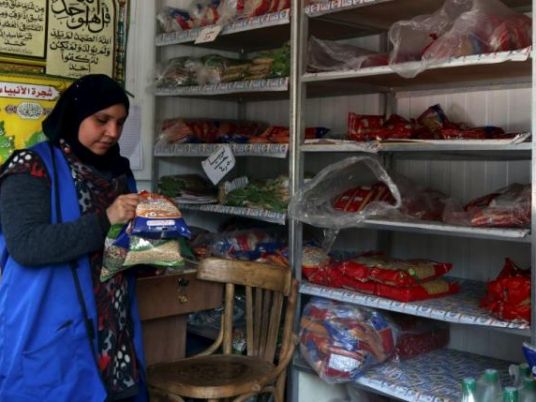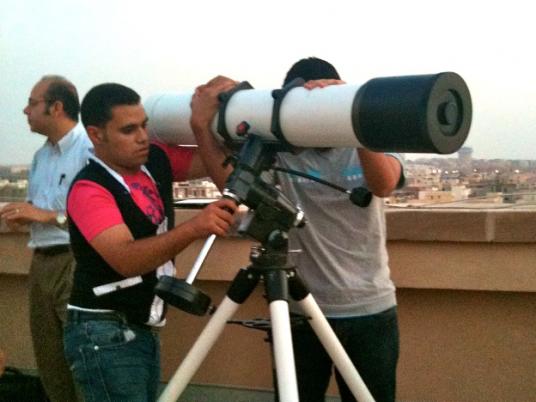The pressure from downtown residents and business owners to reopen Tahrir Square is intensifying after 26 political movement and parties decided to suspend their 23-day sit-in until after Ramadan.
However, twenty martyrs’ families, who were among the first to join the sit-in, are resisting calls to end their protests. They say they are awaiting reparations from police implicated in killing their relatives and fear harassment and intimidation if they return home.
Squabbles and arguments erupted this afternoon between shop owners affected by the sit-in and members of the popular committees securing the square, with the former threatening to open the square by force.
“I am sending a message to the people in Tahrir. If they dodn’t open the square, all the residents and shop owners in the Talaat Harb area will go and break this sit-in up with our own hands,” said Abul Ela, a shop owner in the nearby Bustan shopping mall, who refused to provide his last name.
“I am fed up and I can’t pay the shop’s rent because clients don’t come anymore since the sit-in started,” he said.
Passersby gathered on Sunday afternoon, as members of the popular committees guarding the square stood at entrances holding sticks, ready to face any assault from outside.
“You are not the 25 January revolution youth. Look at you. You are just a bunch of thugs,” shouted one of the passersby, who then walked away in fury.
Those maintaining the protest believe they have legitimate rights that are still to be answered by the ruling Supreme Council of the Armed Forces (SCAF) and the government.
“The country was being robbed for 30 years. How can they say we are harming their interests?” said Emad Gad, 40, a member in the Maspiro Youth Union, who was directing traffic on Talaat Harb Street.
“We will not move out of Tahrir or open it until after we have secured the rights of the martyrs. We demand a just retribution for their blood,” Gad said.
Among the relatives of the dead who are determined to stand their ground is Mostafa Morsy, whose 22-year-old son Mohamed was shot and killed in front of Marg police station on 28 January.
“The revolution’s martyrs and wounded are the core of the revolution, and we will not suspend the sit-in," said Morsy. "We are continuing the sit-in until we get retribution from the policemen who killed our kids. We will not leave until we see them in jail."
Outside the tents occupied by the familes of the dead, some relatives stood holding sticks for protection.
“I am not interested in politics and I am far from the political forces. They supported us, but we have different demands from theirs. We will not leave until we see all of those responsible for killing our brothers imprisoned,” said Khaled Abdel Kereem, whose brother was shot and killed by security forces in front of the Marg police station.
Abdel Kereem described the LE30,000 that the SCAF promised to give to martyrs’ relatives as little more than a "sedative".
“They are trying to appease us before Mubarak’s trial [scheduled for 3 August], but we now understand all their games,” added Abdel Kereem.
Twenty-six political groups said in a statement on Sunday that they would suspend protests and sit-ins nationwide during the Islamic holy month of Ramadan, with demonstrations to be resumed after Eid, in order to achieve the goals of the 25 January revolution.
Aside from the fights at the entrances to Tahrir Square, some groups inside the square were trying to convince martyrs’ families and some independent groups to open the square to traffic, while continuing the sit-in.
“I believe we should at least open the square for traffic, because our number is much fewer now, Ramdan is approaching and we don’t want to anger people. Plus, people will be fasting and tired, so it will be hard to secure the square,” said Mona Seif, a political activist and a leader in the "No To Military Trials" movement.
However, Seif, who has been camping in Tahrir for more than three weeks, stressed that her group would not leave the martyrs’ families behind.
“We will keep standing by the families because their demands have still not been achieved and they didn’t receive any security from the threats they get from policemen accused of killing their loved ones,” added Seif.
The families of those killed in the revolution have been subjected to continual threats and intimidation from policemen in their neighborhoods, pressuring them to drop the charges against them, they say.
Meanwhile, Egyptians are anticipating the historic trial on Wednesday of former President Hosni Mubarak, his Interior Minister Habib al-Adly and six high-ranking police officers, on charges of killing more than 800 protesters during the 18-day uprising that toppled Mubarak’s regime.




